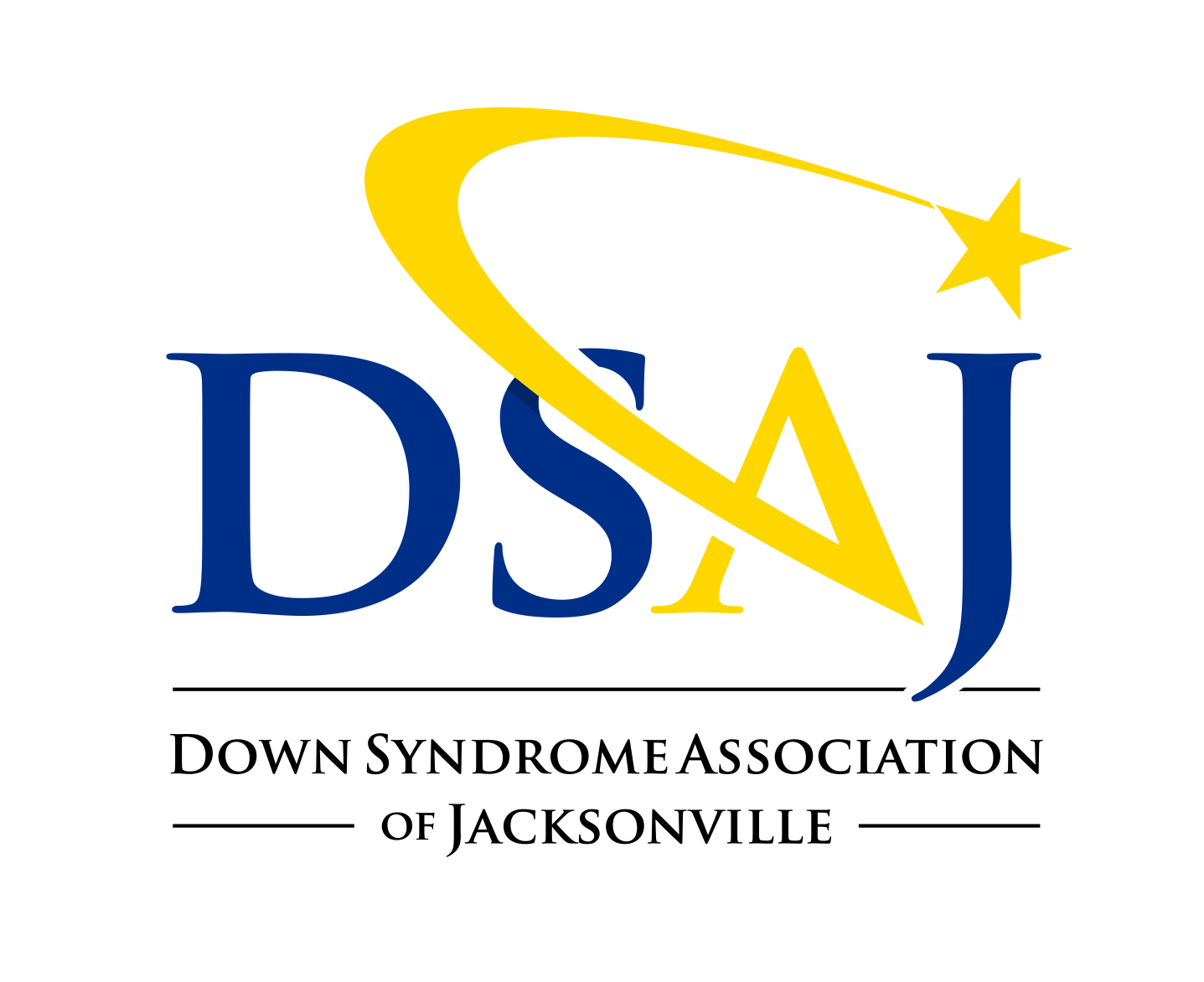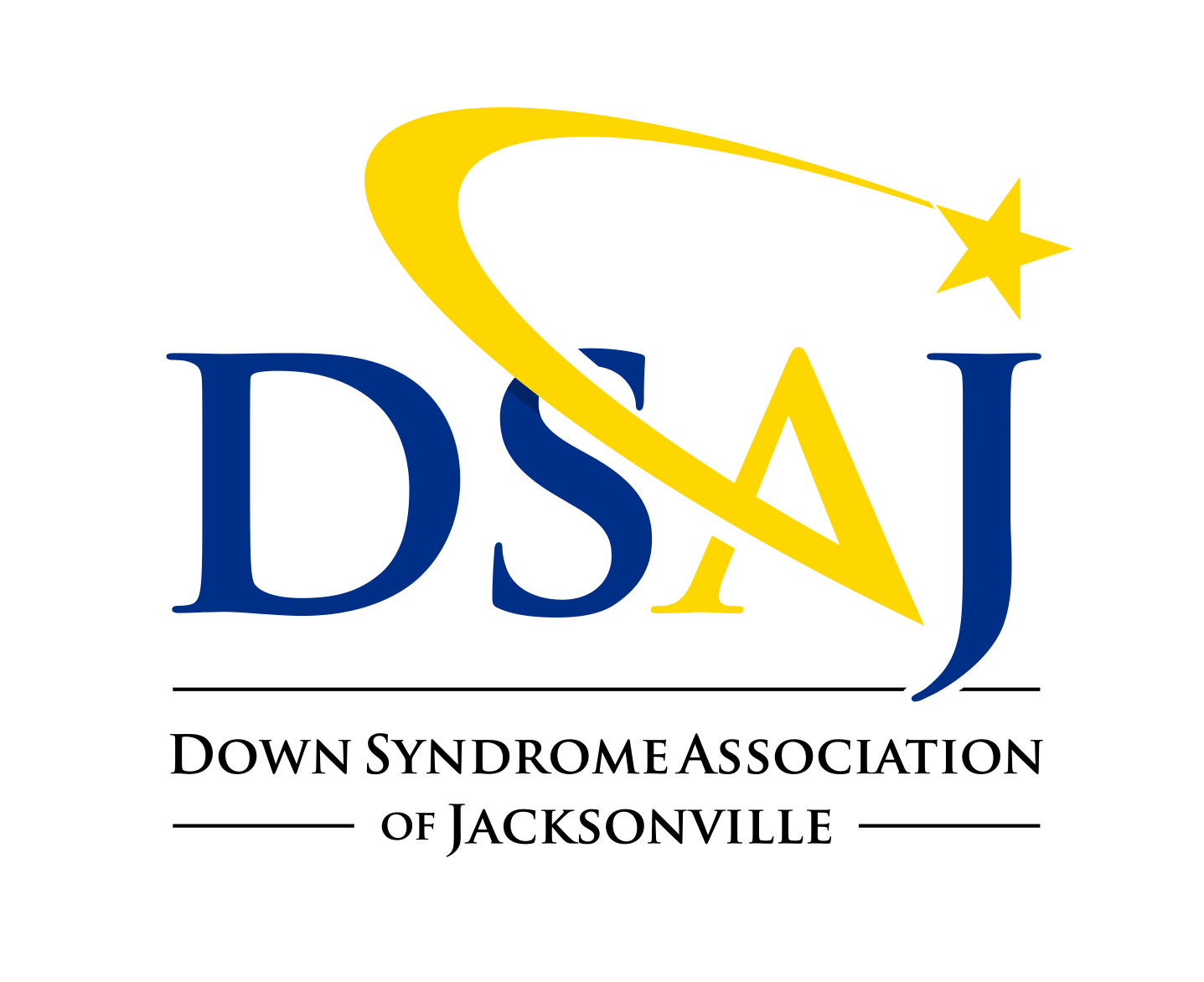


Congratulations!
The Down Syndrome Association of Jacksonville is here to offer you support and guidance. We encourage you to learn all you can about Down syndrome and to embrace hope for a promising future. Our goal is that the New Parent Packet will give you guidance as you begin understanding the diagnosis and optimism for a bright future.
WHAT IS DOWN SYNDROME?
Down syndrome is a genetic condition which is the most commonly occurring chromosomal condition. It occurs in 1 out of every 792 births and affects people of all races and economic levels. Typically, babies receive 23 chromosomes from their mother and 23 from their father. A baby with Down syndrome, for unknown reasons, will have three copies of the 21st chromosome instead of two. That is why Down syndrome is also called Trisomy 21. Every cell will contain 47 instead of the typical 46 chromosomes.
There are also two other forms of Down syndrome which are quite rare – mosaic and translocation. This extra genetic material will affect a baby's development, however, the baby has also inherited many physical and personality characteristics from his/her parents as well. A definitive diagnosis can only be made with a karyotype, which is a visual display of a baby's chromosomes. In the United States there are approximately 350,000 individuals living with Down syndrome. These individuals are active, vital members of their families and communities. A life with Down syndrome is a life well worth living.
We would like to introduce you to our Executive Director, Debbie Revels, who has helped hundreds of families just like you. We are here to offer you the information and support that will assist you during these uncertain days. Based on your comfort level and individual request, we can:
Connect you with other families and children from birth – 5 years old who can offer you the personal support from the perspective of someone who can easily recall the feelings and emotions that you may be experiencing.
Connect you with other local agencies that can help you and your family.
Schedule a time to meet and receive our welcome gift and Buddy Basket from the Tesori Foundation.
MORE FACTS
There are three types of Down syndrome: trisomy 21 (nondisjunction) accounts for 95% of cases, translocation accounts for about 4% and mosaicism accounts for about 1%.
Down syndrome occurs in people of all races and economic levels.
A woman’s chances of giving birth to a child with Down syndrome increase with age because older eggs have a greater risk of improper chromosome division. But due to higher fertility rates in younger women, 80% of children with Down syndrome are born to women under 35 years of age.
People with Down syndrome have an increased risk for certain medical conditions such as congenital heart defects, respiratory and hearing problems, Alzheimer's disease, childhood leukemia, and thyroid conditions. Many of these conditions are now treatable, so most people with Down syndrome lead healthy lives.
A few of the common physical traits of Down syndrome are low muscle tone, small stature, an upward slant to the eyes, and a single deep crease across the center of the palm. Every person with Down syndrome is a unique individual and may possess these characteristics to different degrees or not at all.
Life expectancy for people with Down syndrome has increased dramatically in recent decades–from 25 in 1983 to 60 today.
People with Down syndrome attend school, work, participate in decisions that affect them, and contribute to society in many wonderful ways.
All people with Down syndrome experience cognitive delays, but the effect is usually mild to moderate and is not indicative of the many strengths and talents that each individual possesses.
Quality educational programs, a stimulating home environment, good health care, and positive support from family, friends and the community enable people with Down syndrome to develop their full potential and lead fulfilling lives.


